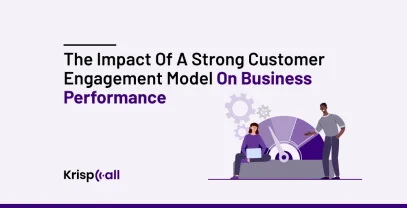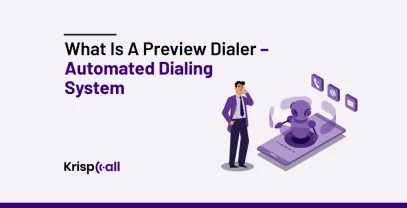Today, customers can easily access endless information 🙂 about products and other customers’ experiences with just a few clicks. By the time they reach out to a salesperson, they often already have a clear idea of what they want and what you offer.
In such cases, customers seek a more insightful 🤔 and consultative approach. This is where the challenger sales model enters. It transforms salespeople into trusted advisors, ultimately leading to more conversions.
This guide will help you acquire the Challenger sales model and benefit from challenger selling. We’ll also discuss the pros and cons of the Challenger sales methodology.
🔑 KEY HIGHLIGHTS
- The challenger sales model is a B2B sales technique that ditches the traditional “be their friend, agree with everything” approach. Instead, it focuses on the core principles such as teaching, tailoring, and taking control.
- The benefits of the challenger Sales model are differentiation, value creation, deeper relationships, increased sales effectiveness, and market leadership.
- The simple steps to acquiring a challenger sales model are learning the principles, Identifying your customer’s needs, developing insight-led content, continuously improving, and creating a challenger mindset.
- The challenger sales methodology is an efficient sales model focusing on teaching, tailoring, and taking control.
What is the Challenger Sales Model?

The challenger sales model is a sales methodology that encourages customers to rethink their current strategies. It mainly focuses on educating, customizing, and guiding sales conversations rather than solely focusing on relationship building.
However, this model requires salespeople to know extensively about their customer industries, potential risks, and market opportunities. Sales reps must leverage this understanding to offer fresh insights and encourage customers to explore innovative perspectives.
Types of Salesperson in Challenger Sales Model
The Challenger Sales Model identifies five types of sales reps, each with distinct skills and behaviors.
- The challenger: This type of salesperson pushes the customer toward a fresh understanding of their business problems, offers a voice around potential answers, and implements a constructive strain on a client. In other words, the challenger does not agree with the buyer’s attitude and works on providing new insights to help customers reconsider their thinking.
- The relationship builder: This type of salesperson prefers building personal relationships with customers rather than spending much time and attention on sales. They tend to maintain strong credibility with people they already know. Such people make their buyers feel comfortable and relaxed in searching for solutions without pressure.
- The hard worker: This type showed, on average, good at all of the selling. They do as much as possible to satisfy their customers but cannot persuade buyers with their innovative solutions.
- The lone wolf: Such salespeople are independent and often assert, “I am at my best when I work alone.” They are charismatic and may perform perfectly but become inconsistent. They are about someone who wholly operates outside the sales process but produces results.
- Problem solver: This type of salesperson is good at helping customers meet their needs by offering reasonable solutions. Still, a problem solver struggles with challenging a customer or introducing new ideas that diverge from the existing ones.
How do Businesses benefit from challenger selling?
Challenger selling is a persuasive sales model suitable for businesses to employ beyond typical product or service promotion. It involves challenging customers’ feelings, providing competitive new ideas, and pushing customers toward a solution they never imagined would be possible.
This approach helps businesses in several ways. Businesses can separate themselves from the sluggish competition by providing unmatched insights and value propositions. By giving customers new reasons to care about how they operate or recoup revenue, firms build the story to back their viewpoints and establish themselves as advisors rather than mere sellers.
Another benefit of challenger selling is that it allows businesses to develop highly customized solutions that resonate with customers’ needs and challenges. Rather than pushing the product, sales representatives engage clients in more profound discussions that help identify root problems and develop precisely what the client needs.
Such a method boosts client satisfaction and ensures they return and refer others to the business. Challenger selling allows companies to develop stronger relationships, have a more informed impact on the business, and accomplish continuous growth.
What are the Pros & Cons of the Challenger Sales Methodology?
The challenger sales methodology has its own set of pros and cons. Let’s weigh the pros and cons to help you decide if the challenger approach fits your sales team.
Pros
- Increased win rates: Challengers go beyond explaining your product’s features and benefits. They mainly focus on educating the customer on potential, hidden challenges and present their solutions as the answer. Besides that, challengers craft compelling value propositions that resonate with specific customer needs. This can lead to higher conversion rates and more closed deals.
- Stronger customer relationships: Challengers act as trusted advisors who take time to understand needs and identify hidden challenges to provide customized solutions. Ultimately, this helps build strong relationships, fostering customer trust and loyalty.
- Improved sales productivity: When your sales team adopts the challenger mindset, they can lead sales discussions confidently. Moreover, they can effectively navigate customers through the buying process, instantly identifying and addressing objections along the way.
- Differentiation in a competitive landscape: The challenger approach helps your salespeople stand out from the crowd. You can differentiate your brand and sales approach from competitors by offering distinctive insights, challenging conventional perspectives, and tailoring solutions to individual customers.
- Development of high-performing sales teams: The challenger model approach is to take control of sales conversations. It encourages continuous learning, critical thinking, and strategic communication within your sales team. By embracing this methodology, you can foster the development of high-performing salespeople who can navigate complex B2B sales environments effectively.
Cons
- Risky: This sales methodology can be risky for businesses if the salesperson is not confident or credible enough to challenge prospects. Sometimes, it can also backfire when the salesperson comes across as arrogant and disrespectful.
- Difficult to master: Salespeople cannot thrive in a challenger role. Your sales team has to be assertive and insightful, comfortable challenging the status quo and navigating potentially confrontational conversations. Introverted or less assertive team members might struggle with the communication style required and feel inauthentic, pushing a more aggressive approach.
- Requires Extensive Training: Agents cannot provide an accurate solution without training. Therefore, you must invest in your sales team’s training to successfully implement the challenger’s sales model.
- Requires a certain level of skill and experience: Besides training, your sales team requires a certain level of skill and experience to be effective. This makes the challenger sales model less suitable for less skilled sales reps with traditional relationship selling experience.
- Complexity: There is no doubt that tailoring solutions to each customer can be time-consuming and complex. This is especially true when you are dealing with a large customer base where each customer explains their different problems.
How to Acquire a Challenger Sales Model in 5 Simple Steps?
To acquire a challenger model, here are 5 simple steps that you can use.
1. Learn the principles of the Challenger Sellers Model
This encompasses defining the following five major sales such as hard work, lone wolves, relationship building, challenger and reacting problem solvers. Focus on the challenger persona, fundamentally interested in tailoring, teaching, and managing the sales process.
2. Identify your customers’ needs
Knowing your needs will undoubtedly take your sales process to the next level, especially under the challenger sales model. This step starts with a deep analysis based on demographic information, market trends, and direct customer input from surveys, interviews, or social media tracking. Sales representatives must understand their customers’ priorities and objectives, which is a necessary base for reflecting on how your products and services can meet their aspirations.
3. Develop a challenger mindset
Instead of pushing your solution, aim to build a strong customer understanding through discussions. As consultants, salespersons should question conventional thinking, provide insights that clients wouldn’t consider, and direct them to new solutions adapted specifically for them. This method fosters confidence and strengthens the selling procedure.
4. Develop insight-led content
Develop content that emphasizes your expertise and offers your consumers valuable information. For example, Whitepapers, business studies, industry research papers, or blogs that respond to their questions and difficulties and offer innovative solutions. Your aim should be to persuade people that you are a brilliant and honest advisor delivering actionable items.
5. Continuously improve
Use regular evaluations of your sales performance feedback from team members and customers to develop your sales performance. Invest in further training and development to fine-tune your challenger abilities in areas that require strengthening. Each Challenger sales rep should always remain current with business developments, innovations, and best practices. This way, you will help guarantee that the approach continues functioning efficiently in a rapidly changing marketplace.
What is the Challenger Sales Training?
Challenger sales training is expert sales training that educates sales representatives on how to teach customers new ways to think and behave. It will teach salesmen behaviors, allowing reps to handle the deal and make customer decisions.
This sales methodology thesis suggests that successful sales representatives dare violate customers’ expectations while giving them helpful insights to enable better judgments. Its training program utilizes several learning modes: instructor-led training, eLearning, and hybrid courses.
The coursework has been structured to reach one’s learning style and engage multiple senses, which helps imprint knowledge and facilitate its application. It includes training on sales skills development and the execution of sales and marketing. This program also provides sales manager coaching to prepare them to develop their sales team using the challenger sales strategy.
Turning Your Sales Team Into Challengers Through “Reframe”
Making your sales team into challengers via “Reframe” requires teaching them how to reshape a customer’s thoughts by challenging their assumptions and giving them new information. Reframing is a critical part of the challenger sale theory, as it entails salespeople disturbing their customers’ current views to help them make sense of the pack and persuade them to make a change.
Through reframing, sales teams will help buyers find alternatives that genuinely help them meet their precise needs and challenges. The three essential skills are teaching customers, providing adapted insights, and controlling the conversation. These are the basis for forming the next challenger among your staff.
Conclusion
The challenger sales methodology is an efficient sales model focusing on teaching, tailoring, and taking control. It is a sophisticated approach that enables your sales team to control conversion and succeed in today’s complex and competitive world.
Challenger sale is a method that works. It has proven helpful in various fields, including finance, as sales reps challenge the company’s beliefs, convey fresh ideas, guide decision-making, and close offers, simultaneously developing customer relationships. It is a proven strategy for transforming the existing methodology and sales staff into skilled players who can help the business thrive as the number one market.
FAQs
What is the Challenger Selling Model?
The challenger sales methodology is a customer-centric sales approach that highlights the salesperson’s challenge of their customers’ existing outlook, provision of tailored solutions, and leadership of the sales conversation.
What is Challenger Sales Methodology?
Challenger Sales Methodology is a set of techniques, tactics, and processes used by sales reps to implement the Challenger approach in their daily interactions with customers.
What are the characteristics of Challenger Sales Reps?
Here are some of the key characteristics of challenger sales reps:
- Provides unique perspectives
- Strong two-way communication skills
- In-depth knowledge of the customer’s domain
- Identifies ways to cut costs or grow revenues for the customer
- Comfortable discussing budgets
- Pushes the customer to decide
What are the fundamental principles for implementing the Challenger Sales model?
These are some of the fundamental principles for implementing the challenger sales model:
- Commercial teaching
- Challenging assumptions
- Continuous learning and adaptation
- Results Orientation
- Customer-centricity
What does it mean to be a challenger?
Being a challenger, especially in the context of sales, means adopting a specific approach to engage with customers that involves challenging their current thinking, assumptions, and approaches to their business challenges.
How does a Challenger Sales Model work?
The challenger sale model is premised on challenging a consumer’s mind mentality, providing insight, redefines attitudes, and forcefully steers the conversation to a specific solution that can sufficiently address the need at a personal level. From the model, one can learn how important it is to be aggressive, have a message, and frame the debate to persuade the customer as he sits in the box and makes decisions.





